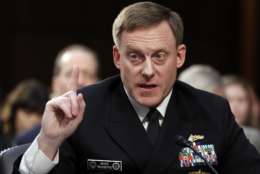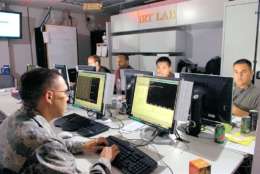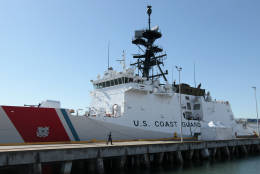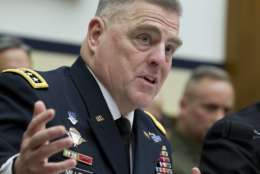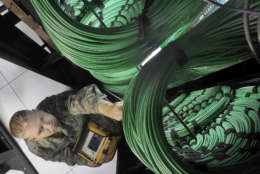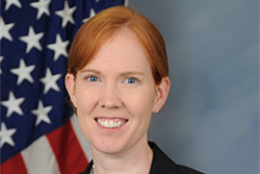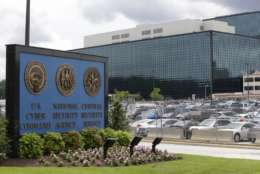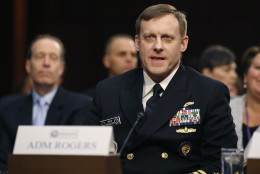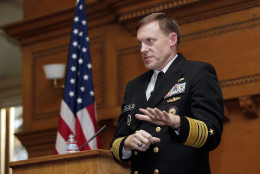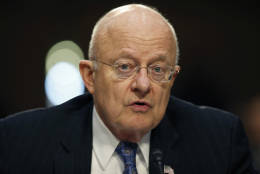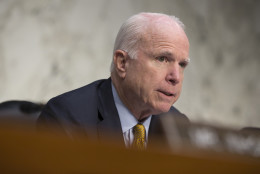Cyber Command
-
USCYBERCOM's top official says agencies understand their roles and responsibilities for cyber defense, but not how to coordinate their responses quickly.
February 28, 2018 -
DoD's Director of Operational Test and Evaluation urges the Pentagon to put further JRSS deployments on hold.
January 30, 2018 -
The Coast Guard's Cyber Command has to balance its identity as a military service with its role as a component of the Homeland Security Department.
December 08, 2017 -
The Army has its eyes set on closing the gap between technology life cycles and acquisition cycles.
November 07, 2017 -
The Army and Navy both said on Thursday that their contributions to U.S. Cyber Command's Cyber Mission Force had achieved full operational capability, a year ahead of the timeline DoD set for the military services.
November 03, 2017 -
Putting CYBERCOM on an even playing field with the rest of the Defense Department's combatant commands has serious implications.
September 01, 2017 -
U.S. Cyber Command's elevation to a unified combatant command is "mostly symbolic," but the symbolism is important.
August 24, 2017 -
Pentagon cybersecurity officials say two global ransomware attacks highlighted improvements the Defense Department has made to its ability to command and control its own networks, but also showed areas that are ripe for improvement.
July 24, 2017 -
Sen. John McCain (R-Ariz.), chairman of the Armed Services Committee, asked whether a new approach to the tactical and operational aspects of federal cybersecurity could be a powerful tool for addressing gaps that impede existing organizational structures.
June 05, 2017 -
U.S. Cyber Command is creating a 10 person team to handle the $75 million a year it will have for acquisition.
January 03, 2017 -
Several key GOP members of Congress began to weigh in this weekend with strong disapproval over suggestions that Adm. Michael Rogers, the director of the National Security Agency and commander of U.S. Cyber Command, may be fired during the final weeks of the Obama administration.
November 21, 2016 -
The time has come to split U.S. Cyber Command from the National Security Agency and assign separate leaders to each organization, the nation’s top intelligence official said Tuesday.
October 26, 2016 -
The federal government’s cybersecurity policy has reached a crossroads, and the upcoming presidential transition is an opportunity to take a long, hard look in the mirror, and decide how to move forward.
October 21, 2016 -
The chairman of the Senate Armed Services Committee said Tuesday that he would block any effort by the Obama Administration to bifurcate the leadership of the National Security Agency and U.S. Cyber Command, saying the move would be premature and lacked any input from Congress.
September 14, 2016 -
Most planning documents about defending the homeland from foreign threats pre-date the cyber era, leaving some confusion about which element of the military would be in charge during a cyber attack. DoD says it's addressing those discrepancies.
April 25, 2016

